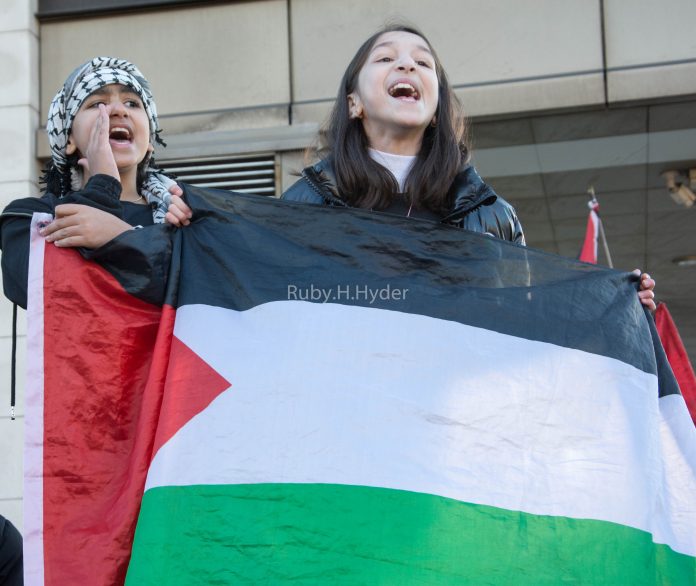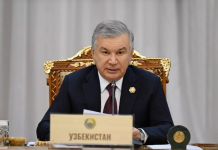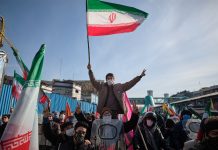 By Amjad Iraqi
By Amjad Iraqi
As the anniversary of Hamas’s 7 October assault approaches, global attention has tilted away from Israel’s war on Gaza as it metastasizes into a broader conflagration with Hezbollah and Iran.
This dramatic turn of events is, tragically, characteristic of Palestinian history. For decades, Palestinians have been held captive to forces far beyond their influence, and this year has been no different.
As Israel imposes new facts on the ground in the occupied territories, and Arab and Western capitals deliberate over ‘day after’ plans, Palestinians’ fate continues to be decided by external powers – largely without their participation.
In recent months, some policymakers have sought to alter this troubling dynamic by encouraging recognition of Palestinian statehood. But this approach is a red herring that fails to grapple with Palestinians’ immediate needs and the deeper predicaments at the heart of the conflict.
Rather than investing further capital on a failed statehood project, policymakers should focus instead on bolstering Palestinian agency through other channels – and, most importantly, countering Israel’s relentless efforts to deplete that agency.
Paralysis and survival
A year into Israel’s devastating military onslaught, Palestinians in Gaza find themselves trapped in an uninhabitable wasteland. Much of the territory’s housing and infrastructure have been turned into valleys of rubble, and its natural environment has been degraded by bombs, toxins, and debris.
The omnipresence of death, displacement and starvation has shattered family and communal relations that made up Gaza’s social fabric, with worrying implications for public order and rehabilitation.
The West Bank, too, has not been spared Israel’s wrath. Military and settler violence, backed by top Israeli government officials, have expanded the annexation of the territory, displacing hundreds of Palestinians and capturing more land for settlements.
The Israeli army has intensified its incursions into Palestinian cities and refugee camps, ostensibly targeting local armed groups but inflicting collective punishment on civilians. Palestinians inside Israel and in the diaspora are also threatened by multiple forms of repression, censorship, and other attacks against their identity and activism.
This struggle for basic survival has been exacerbated by the political paralysis of Palestinians’ fractured leaderships, which have offered little strategic direction to guide their people out of the quagmire.
Hamas’s military apparatus has been severely weakened by Israel’s offensive, but the movement remains politically active in Gaza and beyond. The appointment of Yahya Sinwar as politburo chief, following the assassination of Ismail Haniyeh, signals a more hardline orientation and closer ties to Iran.
Hamas enjoys credibility as a flagbearer of armed resistance, and may argue that it has irreparably weakened their occupier. But many Palestinians remain critical of the party’s years of authoritarian rule in Gaza and the catastrophic consequences of the 7 October assault.
Meanwhile, the Fatah-led Palestinian Authority (PA) – headed by a troika of President Mahmoud Abbas, intelligence chief Majed Faraj, and civil affairs head Hussein al-Sheikh – has repeatedly undermined reconciliation efforts with Hamas.
The PA’s heavy focus on garnering statehood recognition has done little for Palestinians on the ground. Public anger over the PA’s impotence, mismanagement of economic needs, and complicity as a ‘subcontractor’ of the occupation have further eroded its already dire standing.
Shifting interests, alternative power
Amid these grim realities, however, there have been three strategic openings that could enable Palestinians to put their struggle back on track.
First, the international solidarity movement has made major strides in integrating Palestinian rights into domestic agendas worldwide. In contrast to the paralysis inside Palestine, there has been extraordinary grassroots and civil society mobilization, often led by the Palestinian diaspora, in Western countries whose governments are closely allied with Israel.
New cadres of Palestinian commentators, activists, and advocates are drastically reshaping media coverage of the conflict and swaying popular opinion, particularly among younger generations.
The Gaza war is now a divisive issue in the US election, with discontented voters in swing states like Michigan threatening to inflict a political price on the Democratic Party for President Joe Biden’s Middle East policies.
Second, the Palestinians’ use of international institutions to counter Israel’s policies bore some fruit this year.
The chief prosecutor of the International Criminal Court (ICC), Karim Khan, has applied for arrest warrants against Israeli Prime Minister Benjamin Netanyahu and Defence Minister Yoav Gallant, alongside three Hamas leaders (two of whom are now assassinated).
The International Court of Justice (ICJ), in tandem, ordered two sets of provisional measures regarding South Africa’s case charging Israel with genocide, and issued a landmark advisory opinion deeming Israel’s entire occupation of Palestinian territories illegal. Multilateral efforts at the United Nations (UN) are also seeking to raise the costs of Israel’s occupation and bypass Washington’s obstructive veto in the Security Council.
Third, the totality of Israel’s war has increased pressure on Fatah and Hamas to secure a unity agreement. Before 7 October, the two parties had somewhat benefited from Israel’s severance of the West Bank and Gaza, enabling each party to control separate fiefdoms.
With the status quo upended, the costs of their rivalry have risen significantly.
Members of each party now recognize the need to reconcile in order to restore public legitimacy, preserve some ownership over national affairs, and persuade regional actors to invest in Palestine’s recovery.
A declaration of unity signed in Beijing last July reflects that growing mutual interest, but it has yet to be translated into a meaningful programme, with President Abbas playing down its significance.
Altering the equation
Beyond the immediate need to press for a ceasefire and deliver urgent humanitarian aid to Gaza, policymakers must create the space for Palestinians to reorganize their political agency, without the attacks and constraints that have debilitated their efforts for years.
In lieu of this, governments must bring pressure to bear on Palestinian elites, particularly Abbas, to form a unity pact under the auspices of the Palestine Liberation Organization (PLO). The PLO is still regarded by Palestinians as their truly legitimate representative body, free of the institutional shackles that made the PA an abetter to the occupation.
“Policymakers should insist that Palestinian civil society be an integral part of shaping the PLO’s national programme.”
This requires Western and Arab governments to recognize that excluding Hamas from the political sphere is neither feasible nor constructive.
The movement has repeatedly signalled its willingness to compromise in ceasefire talks and ‘day after’ plans, and its capacities will be needed to facilitate Gaza’s governance and reunification.






